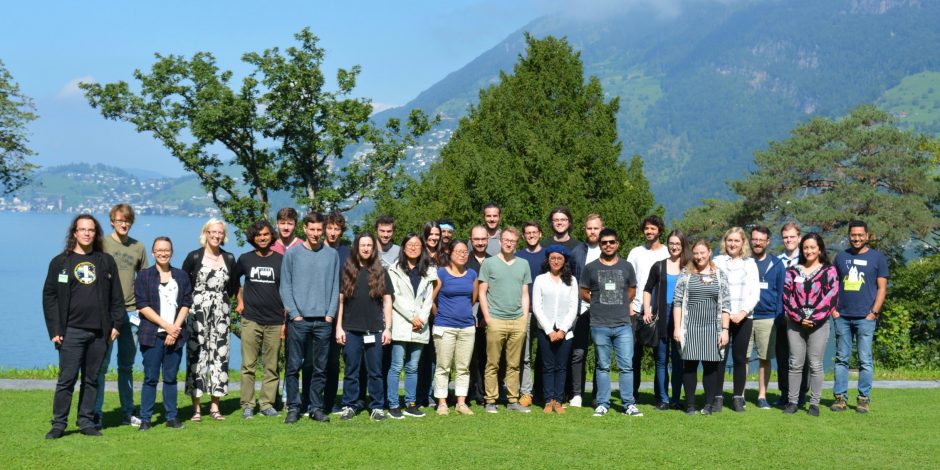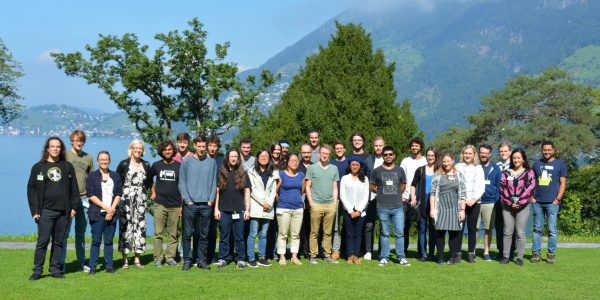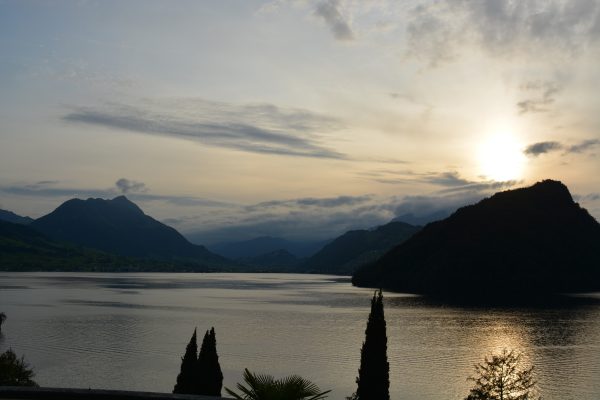JURA 2019

From the 9th to the 11th of September 2019, 31 young researchers from Bern, Geneva, and Zürich gathered at the Flora Alpina hotel in Vitznau (Lake Lucerne, Switzerland) for the second edition of the NCCR Junior Research Assembly (JURA). The aim of the meeting was to bring together young researchers affiliated with the NCCR PlanetS together to exchange about planetary science and reinforce the links between their institutions.
During this workshop, participants were invited to give presentations or to display posters to present and share their research with each other. This resulted in 17 talks and 5 posters. A wide variety of subjects were thus discussed, covering the whole history of planetary formation, from the earlier stages during the collapse of the envelope, to the study of atmospheric compositions around distant exoplanets. An emphasis was put on linking the different fields. The participants had thus been encouraged to introduce the subject of their research in a way that people from all disciplines (observers, theoretical astrophysicists, meteorite scientists) could understand it and participate in the discussions. Said discussions were very fruitful; younger scientists finding it sometimes easier to discuss, ask questions, propose new ideas, when talking among people at similar stages in their careers; and there is no doubt that they will lead to fascinating collaborative projects in the near future.
But while the JURA is mostly about science, linking scientific fields, it is also about the people conducting the research, in particular PhD students and early postdoctoral fellows, who are starting their careers. Connecting these people working all across Switzerland was also one of the main aims of the JURA workshop. To this end, social activities were organised around the workshop to bring them together. Two options were available on the afternoon of the 10th of September. Attendees could choose between a hike (or ascension via cable car) to the top of nearby Mt. Rigi and a visit to the Vitznau alpine fortress. Those that chose that first option could take advantage of the geographical and geological wealth of one of Switzerland’s beautiful mountains and the gorgeous landscapes the country has to offer. Another option was to visit the Vitznau alpine fortress, a great piece of history as the fortress was part of a defence program Switzerland set in place during World War II. An impromptu karaoke session was also organised on the evening of the 10th with the help of the hotel staff, due to popular demand.
One of the main events of the assembly was also the workshop on imposter syndrome, given by Dr. Sarah Rughmeier. Imposter syndrome is commonly found amongst young researchers and had been identified as an important problem to tackle in previous meetings. As it can be difficult to talk about these issues, such workshops can be invaluable to learn more about them and how young researchers can face them in the course of their career. Dr. Rugheimer was invited because she a) is an astrophysicist who can relate to what the majority of researchers in PlanetS study, and b) she co-hosts a podcast on such matters and helps other scientists to deal with issues such as imposter syndrome. This workshop was very helpful to learn to identify these issues and develop responses in the young researchers’ lives.
The attendees departed the venue on the 11th, no doubt having learnt a whole lot about planetary science, and each other. The event was a success and all left looking forward to the next edition.
Jean-David Bodénan, on behalf of the JURA 2019 organisation committee.
Categories: External Newsletter, News


